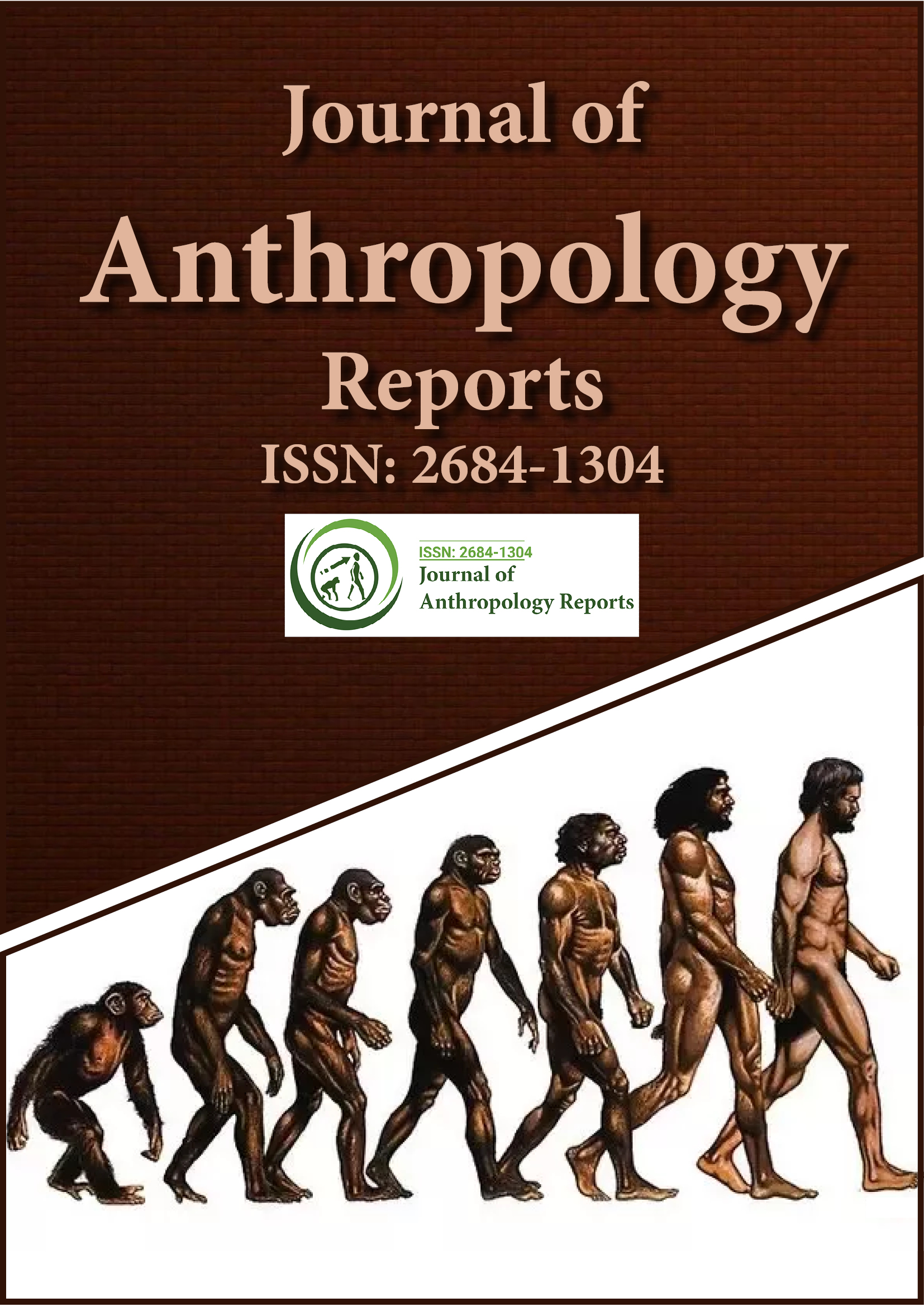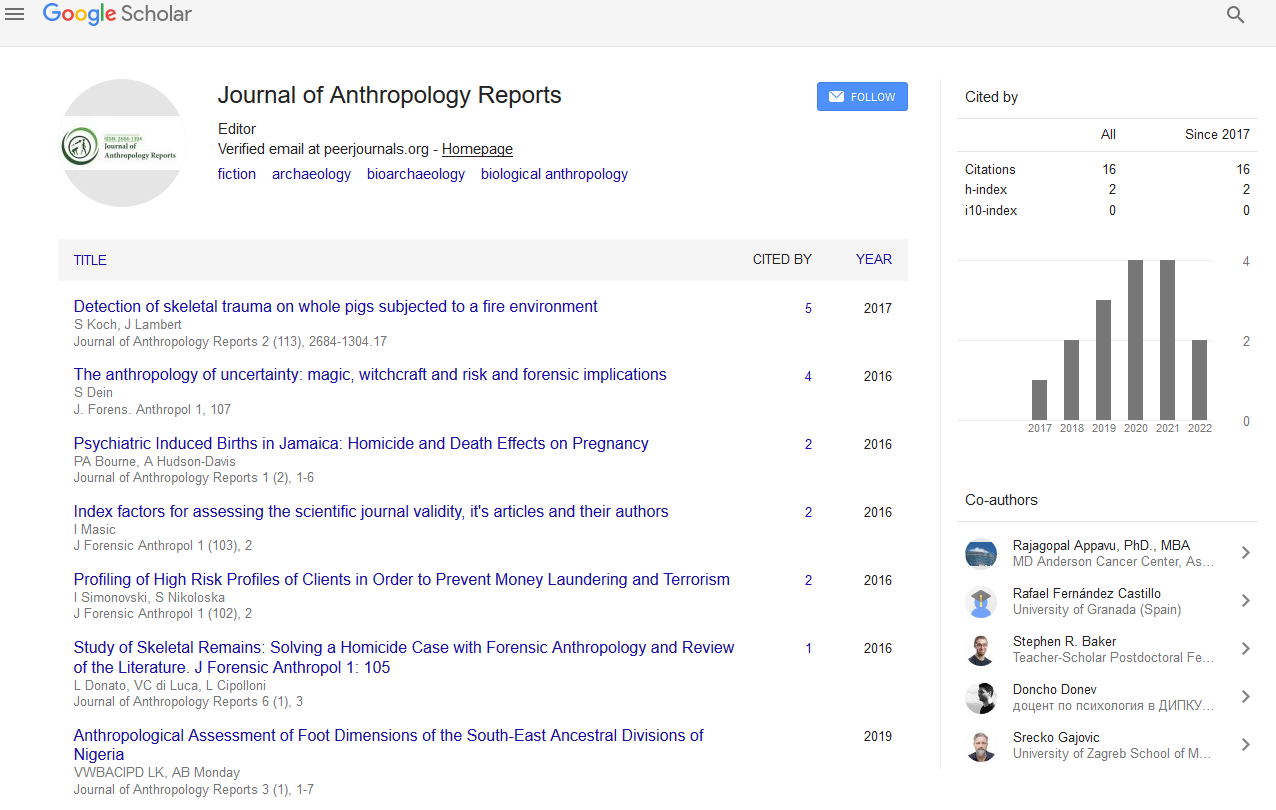Indexed In
- RefSeek
- Hamdard University
- EBSCO A-Z
Useful Links
Share This Page
Journal Flyer

Open Access Journals
- Agri and Aquaculture
- Biochemistry
- Bioinformatics & Systems Biology
- Business & Management
- Chemistry
- Clinical Sciences
- Engineering
- Food & Nutrition
- General Science
- Genetics & Molecular Biology
- Immunology & Microbiology
- Medical Sciences
- Neuroscience & Psychology
- Nursing & Health Care
- Pharmaceutical Sciences
Perspective - (2023) Volume 6, Issue 4
The Depth of Social Anthropology: Prospects the Human Societies and Cultures
Dwyer Dwason*Received: 23-Nov-2023, Manuscript No. JFA-23-23411; Editor assigned: 25-Nov-2023, Pre QC No. JFA-23-23411 (PQ); Reviewed: 08-Dec-2023, QC No. JFA-23-23411 (QC); Revised: 15-Dec-2023, Manuscript No. JFA-23-23411 (R); Published: 22-Dec-2023, DOI: 10.35248/2684-1304.23.6.174
Description
Social anthropology is a intresting field of study that delves into the intricacies of human societies, cultures, and behaviors. It provides valuable insights into the way individuals and groups interact, communicate, and organize themselves within their unique cultural contexts. In this article, we will explore the essence of social anthropology, its evolution, key concepts, and its enduring relevance in understanding the complexities of our globalized world.
Defining social anthropology
Social anthropology, often referred to as cultural anthropology in some contexts, is a subfield of anthropology that focuses on the study of human societies and cultures. Its primary goal is to understand the diversity of human cultures and the shared patterns of human behavior that transcend these differences. Social anthropologists employ a holistic approach, seeking to comprehend societies in their entirety, including their customs, beliefs, languages, social structures, and daily practices.
Historical development
The roots of social anthropology can be traced back to the late 19th century when early anthropologists, like Franz Boas, Bronislaw Malinowski, and Margaret Mead, pioneered fieldwork-based research methods. They rejected ethnocentrism and sought to engage with and understand cultures from within, rather than imposing their own preconceptions. This shift in approach laid the foundation for modern social anthropology.
Key concepts in social anthropology
Cultural relativism: One of the fundamental principles of social anthropology is the concept of cultural relativism. It emphasizes the importance of understanding and interpreting a culture on its terms, without passing judgment or imposing external values. This concept underscores the belief that all cultures have intrinsic value and should be respected.
Participant observation: Social anthropologists often engage in participant observation, immersing themselves in the daily lives of the communities they study. This method allows them to gain deep insights into cultural practices, norms, and values, as well as build rapport with the people they study.
Ethnography: Ethnography is the written or visual documentation of a particular culture or society. Ethnographic studies provide rich, detailed descriptions of the social and cultural life of a community, often based on long-term fieldwork.
Social structures: Social anthropology examines the structures that shape human societies, such as kinship systems, economic arrangements, political organizations, and religious institutions. It explores how these structures influence individuals' lives and interactions.
Relevance in a globalized world
Social anthropology remains highly relevant in today's globalized world. As societies become increasingly interconnected, understanding cultural differences and similarities is essential for effective communication and cooperation. Social anthropologists play a vital role in areas like international development, conflict resolution, and cross-cultural business practices.
Furthermore, social anthropology can explain on contemporary issues such as migration, identity politics, and environmental challenges. It offers tools to analyze the impact of globalization on local cultures and the ways in which societies adapt and change in response to external influences.
In conclusion, social anthropology is a vibrant and evolving field that continues to provide valuable insights into the complexities of human societies and cultures. Its emphasis on cultural relativism, participant observation, and ethnography has shaped the way we understand and engage with diverse communities around the world. As we navigate an increasingly interconnected world, the relevance of social anthropology becomes ever more apparent, share us the cultural gaps and encourage a deeper understanding of our global neighbors.
Citation: Dwason D (2023) The Depth of Social Anthropology: Prospects the Human Societies and Cultures. J Anthropol Rep. 6:174.
Copyright: © 2023 Dwason D. This is an open-access article distributed under the terms of the Creative Commons Attribution License, which permits unrestricted use, distribution, and reproduction in any medium, provided the original author and source are credited.

